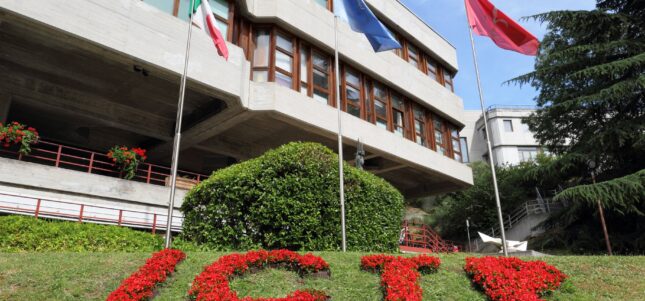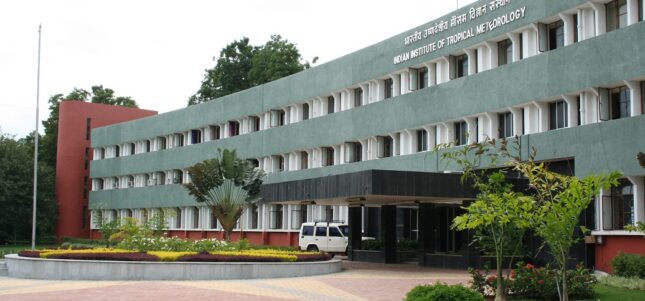AGU Fall Meeting 2022 will be held in Chicago and online everywhere 12 – 16 December 2022.
The abstract submission deadline is 3 August (23:59 EDT/03:59 +1 GMT).
Abstracts can be submitted here.
A number of sessions related and/or of interest to the SPARC community have been organised for this year’s fall AGU meeting. The following is a non-exhaustive list:
A004 – Advances in understanding and modeling of the QBO and its impacts
Primary Convener: Jadwiga Richter (National Center for Atmospheric Research)
Conveners: James Anstey (Environment Canada), Yoshio Kawatani (JAMSTEC), Scott M Osprey (Oxford University)
A020 – Atmospheric Chemical Mechanisms: Connecting Experiments, Theory, and Modeling
Primary Convener: Victoria P. Barber (Massachusetts Institute of Technology)
Conveners: Jessica Haskins (Massachusetts Institute of Technology), Kelvin Hamilton Bates (Harvard University), Keith Tadao Kuwata (Macalester College)
A022 – Atmospheric Chemistry over the Tibetan Plateau: Measurement, Processing and the Impacts on Climate and Air Quality
Primary Convener: Chunxiang Ye (Peking University)
Conveners: Wei Nie (Nanjing University), Jicheng Gong (Peking University), Jianshu Wang (Peking University)
A024 – Atmospheric Gravity Waves, from the Surface to the Edge of Space
Primary Convener: Corwin Wright (University of Bath)
Conveners: Neil Hindley (University of Bath), Min-Jee Kang (Yonsei University), Tyler Mixa (University of Colorado Boulder)
A033 – Bridging the Gap from Climate to Extreme Weather: Observations, Theory, and Modeling
Primary Convener: Jane Wilson Baldwin (University of California Irvine)
Conveners: Gabriel J Kooperman (University of Georgia), Kevin Reed (Stony Brook University)
A035 – Cirrus in the Tropical Upper Troposphere and Lower Stratosphere
Primary Convener: Peter N Blossey (University of Washington)
Conveners: Kara Lamb (Columbia University), Sylvia Sullivan (University of Arizona)
A042 – Constellation of Satellites for Atmospheric Composition and Air Quality
Primary Convener: Shobha Kondragunta (NOAA College Park)
Conveners: Diego G Loyola (German Aerospace Center (DLR)), Claus Zehner (European Space Research Institute), James F Gleason (NASA Goddard SFC)
A052 – Environmental sensor networks
Primary Convener: Misha Krassovski (Oak Ridge National Laboratory)
Convener: Jeffery S Riggs (Oak Ridge National Laboratory)
A062 – Ground-Based Atmospheric Monitoring Networks
Primary Convener: Nicole P Hyslop (University of California Davis)
Conveners: Nicholas James Spada (University of California Davis), Jenny L Hand (Colorado State Univ), Dominique E Young (University of California Davis)
A054 – Extratropical and High-latitude Storms, Teleconnections, Extreme Events, and the Rapidly Changing Polar Climate
Primary Convener: Xiangdong Zhang (University of Alaska Fairbanks)
Conveners: Kent Moore (Univ Toronto), James E Overland (NOAA Seattle)
A055 – Extratropical Large-Scale Atmospheric Circulation Variability
Primary Convener: Paul J Kushner (University of Toronto)
Conveners: Pedram Hassanzadeh (Rice University), Aditi Sheshadri (Stanford University)
A059 – General Session: Atmospheric Chemistry & Composition
Primary Convener: Joost A de Gouw (University of Colorado)
Convener: Anne Thompson (NASA/GSFC)
A060 – General Session: Atmospheric Dynamics & Climate
Primary Convener: James W Hurrell (Colorado State University)
Conveners: L. Ruby Leung (Pacific Northwest National Laboratory), Cecilia M Bitz (University of Washington)
A061 – General Session: Atmospheric Physics, Radiation, Clouds, and Aerosols
Primary Convener: Rong Fu (University of California Los Angeles)
Conveners: V Ramaswamy (NOAA/OAR/ GFDL), Ralph Kahn (NASA Goddard Space Flight Center)
A064 – Improving Subseasonal to Seasonal Predictions Through ESMF-NUOPC Coupled Modeling
Primary Convener: Mark A Olsen (NOAA)
Conveners: Avichal Mehra (National Centers For Environmental Prediction-Environmental Modeling Center), Neil P Barton (US Naval Research Laboratory), Jessie Carmen (NOAA)
A065 – Jetstream Dynamics, Atmospheric Rossby waves and Associated Extreme Weather and Climate Events
Primary Convener: Rachel H White (University of British Columbia)
Conveners: Kai Kornhuber (Potsdam Institute for Climate Impact Research), Haiyan Teng (Pacific Northwest National Laboratory)
A074 – Monitoring and Modelling of F-Gases and Ozone Depleting Substances
Primary Convener: Luke Western (University of Bristol; NOAA)
Conveners: Megan Lickley (Massachusetts Institute of Technology), Marianna Katherine Linz (Harvard University), Piers Forster (University of Leeds)
A081 – Progress in Reanalysis: Development, Evaluation, and Application
Primary Convener: Jan Dominik Keller (Deutscher Wetterdienst)
Conveners: Masatomo Fujiwara (Hokkaido Univ), Michael G Bosilovich (Earth Sciences Division)
Student/Early Career Convener: Masatomo Fujiwara (Hokkaido Univ)
A087 – Stratospheric composition changes: observations and modeling of special events, feedback mechanisms, and long-term trends
Primary Convener: Natalya A Kramarova (NASA Goddard Space Flight Center)
Conveners: Nathaniel J Livesey (Jet Propulsion Laboratory, California Institute of Technology), Irina V Petropavlovskikh (Cooperative Institute for Research in Environmental Sciences; NOAA Boulder, ESRL/GML)
A088 – Subseasonal to Seasonal Climate Prediction, Processes, and Applications
Primary Convener: Andrew William Robertson (Columbia University of New York)
Conveners: Johnna Infanti (Climate Prediction Center College Park), Kirsten J Mayer (Colorado State University), Frederic Vitart (ECMWF)
Student/Early Career Convener: Kirsten J Mayer (Colorado State University)
A090 – The Dynamics of the Large Scale Atmospheric Circulation in Present and Future Climates: Jet Streams, Storm Tracks, Stationary Waves, and Monsoons
Primary Convener: Lei Wang (Purdue University)
Conveners: Isla Simpson (National Center for Atmospheric Research), Gang Chen (University of California Los Angeles), Simona Bordoni (University of Trento)
GC038 – Explaining and Predicting Earth System Change: A World Climate Research Programme Call to Action. Coupling of Observations and Models; Integrated Attribution, Prediction and Projection; Assessment of Current and Future Hazards
Primary Convener: Kirsten Lynn Findell (Geophysical Fluid Dynamics Laboratory)
Conveners: Zhuo Wang (University of Illinois), Isla Simpson (National Center for Atmospheric Research), Haiyan Teng (Pacific Northwest National Laboratory)
OS007 – Earth System Reanalysis
Primary Convener: Detlef Stammer (University of Hamburg)
Convener: Iuliia Polkova (University of Hamburg)
SY016 – Perspectives on the 2022 UN Conference of Parties (COP) 27
Primary Convener: Julie A Vano (Aspen Global Change Institute)
Conveners: Alexandra Shultz (American Geophysical Union), Julie Brigham-Grette (Univ Massachusetts)
U019 – Climate Change & Climate Action Leadership in Illinois
Primary Convener: Trent Ford (Illinois State Water Survey)
Conveners: Ashish Sharma (University of Illinois at Urbana Champaign), Donald J Wuebbles (University of Illinois at Urbana Champaign)
NG004 – Climate Variability Across Scales and Climate States
Primary Convener: Raphaël Hébert (Alfred Wegener Institute Helmholtz-Center for Polar and Marine Research Potsdam)
Conveners: Shaun Lovejoy (McGill Univ), Mara Young McPartland (University of Minnesota)
Student/Early Career Convener: Mara Young McPartland (University of Minnesota)


